International Disaster Relief
Potatoes Bless Families in Eastern Ukraine
7 August 2025
Samaritan’s Purse supplied seed potatoes to people near the frontlines earlier this year. Now they are a growing relief to war-weary families.
Korpo (pictured below) leans into her work, pulling stubborn weeds while examining, and even doting on, the green beginnings of a bitterball crop—a variety of eggplant that grows and sells well in West Africa.
For now the young growth looks a little like a miniature watermelon, but in several weeks Korpo will be celebrating dozens of the ripened vegetables. When they mature, they’ll resemble white tomatoes. They’ll taste like bitter carrots. Liberians love putting them in soups and other recipes.
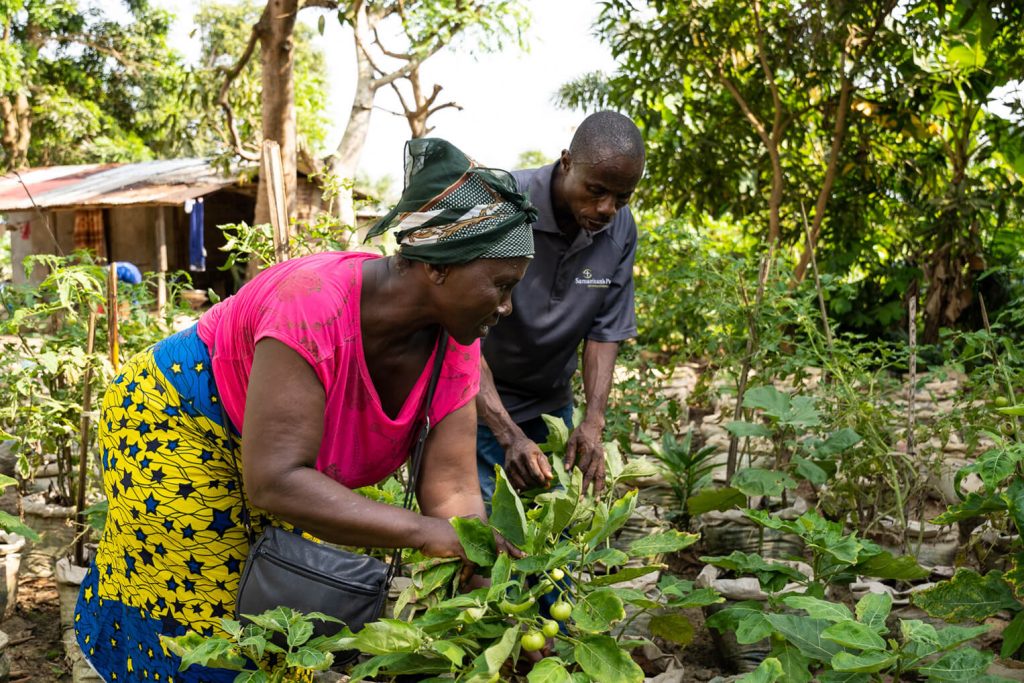
When everything is ready for harvest, Korpo will deliver several varieties of vegetables to market, including cabbage, collards, cucumbers, and tomatoes—which in part she grows to ward off the destructive white fly.
Over the past year, she’s learned how to protect her crops, multiply their yields, turn her small piece of soil into a business enterprise, all while feeding her family high-quality nutrients grown two steps from her home.
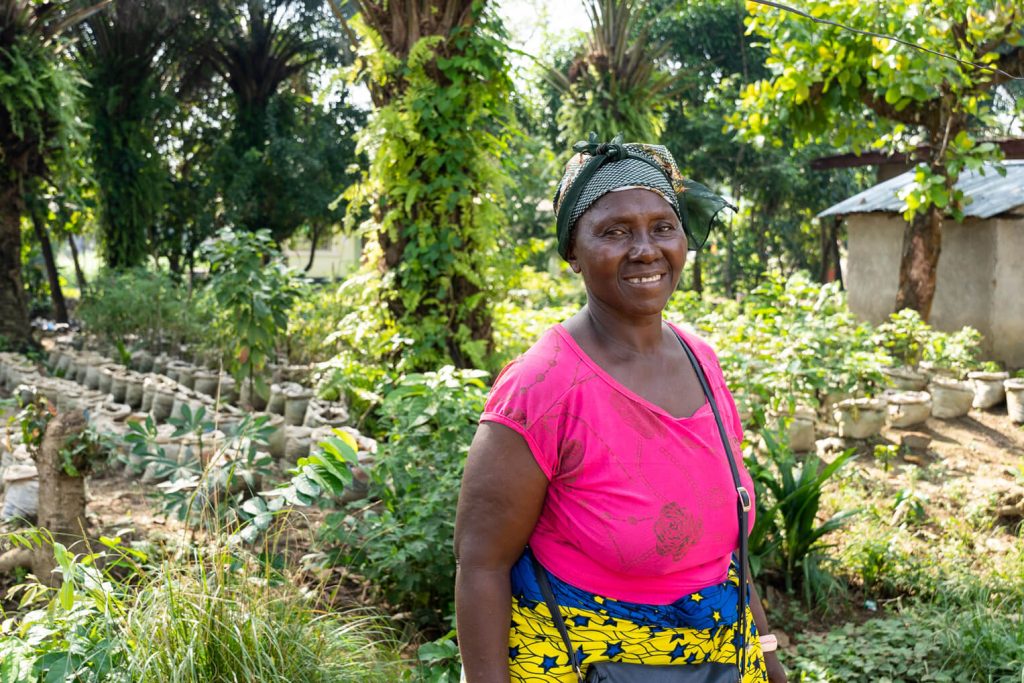
She is one of dozens of students in our Eden Project in Monrovia, an urban gardening program developed by Samaritan’s Purse in Liberia to help city-dwelling agriculturists use small growing spaces to make a living. Students receive training, materials and tools, and ongoing input for their gardens.
Having fresh produce growing in their own backyards has improved the nutrition and health of families in our program, staving off what’s become a citywide problem of malnourishment for countless children in the capital.
“Some families just aren’t aware of what’s causing their toddler to become sick, but we see it every day,” said Daniel Ruiz, Samaritan’s Purse country director in Liberia. “They bring them into our screening clinics. The hair has lost its colour. The child is listless. It’s malnutrition. This was one of many reasons we started the Eden Project years ago.”
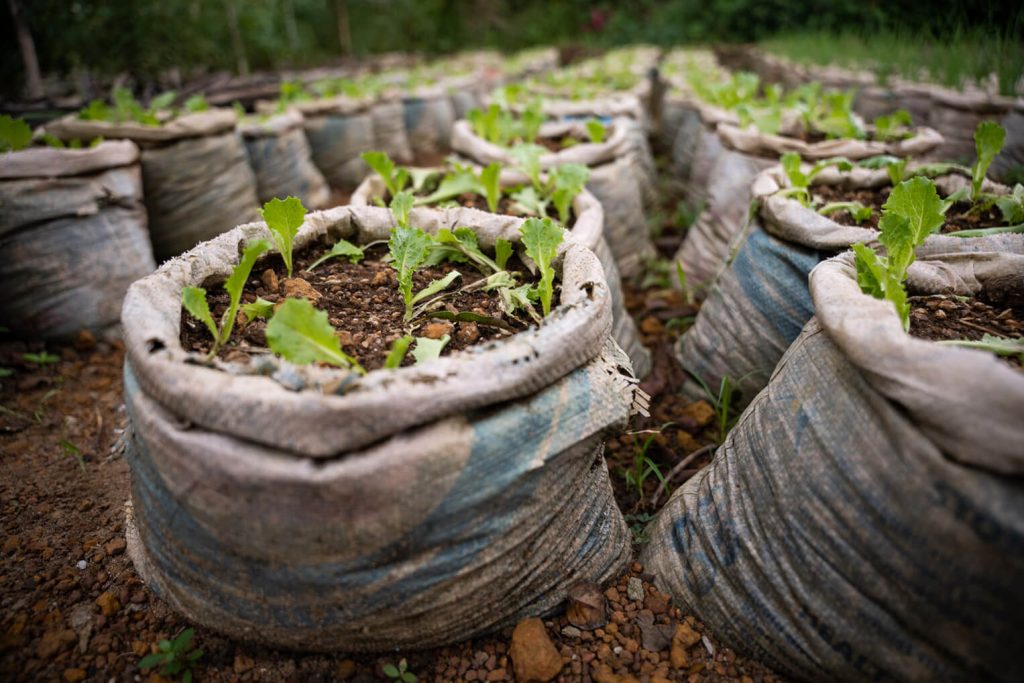
Our students also learn about important business practices and budgeting skills. Our advisors help them work with local vendors to secure fair prices, a constant challenge for growers like Korpo. Eden Project families typically use profits from their produce sales to pay for school fees, clothing, and other important expenses.
“I feel proud,” Korpo said. “It makes me feel strong that I can grow on my own, that I can generate money and grow food for my family.”
Korpo is a single mother with two young children, and she already had been doing some light gardening when our teams met her. Our program focuses on identifying those who have both financial need and some experience in agriculture.
“We want to be sure they have a good site selected, access to the right elements for building good soil, and, most important, a reliable water source,” program technical advisor Koiwu Gayflor said. “A person who has already been growing will have these things and will experience greater success.”
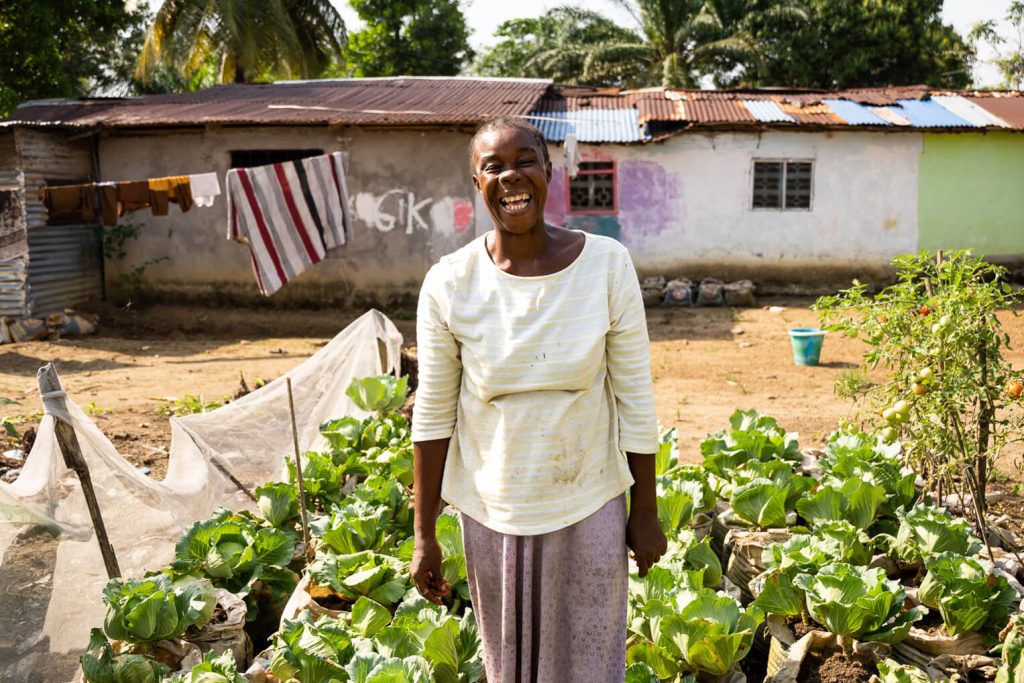
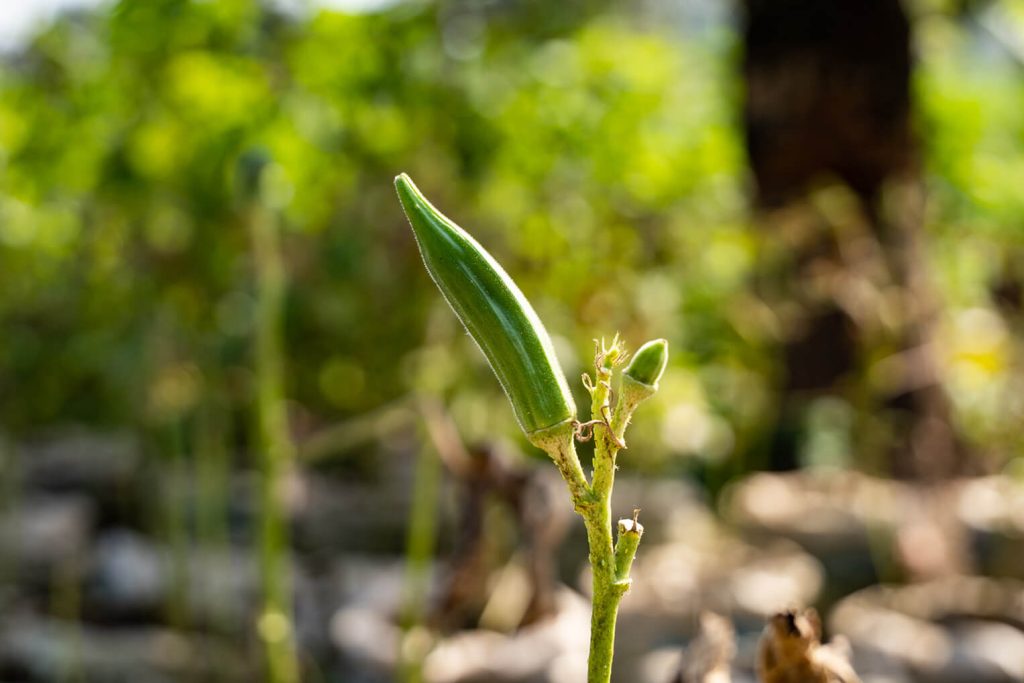
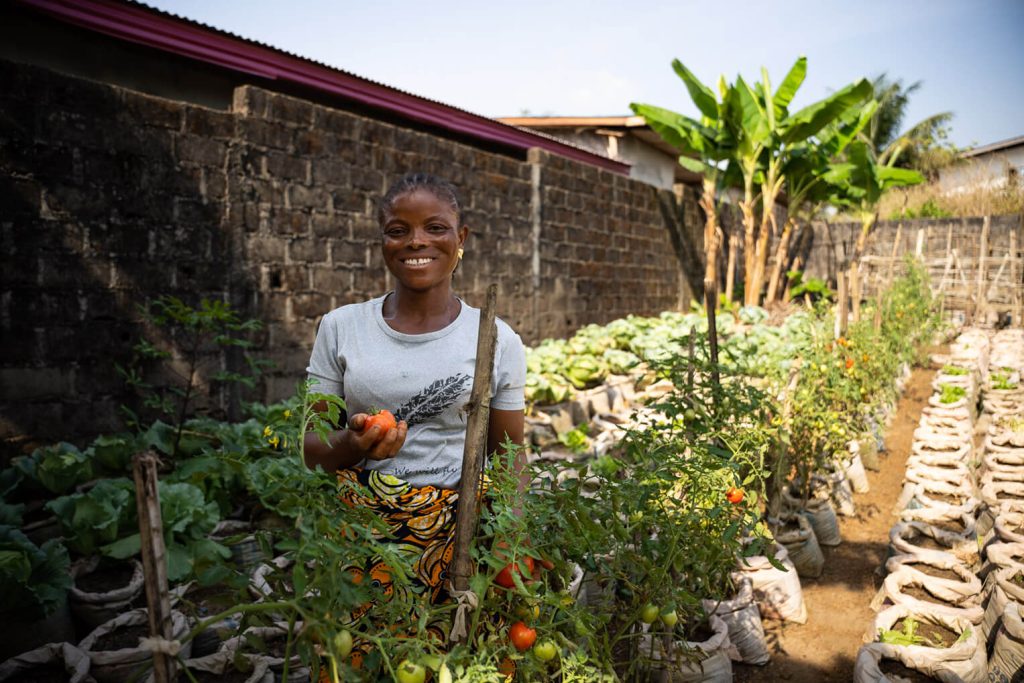
Korpo’s small plot of land, carved out between her home and the wall of an apartment building, turned out to have the ideal slope and soil for growing a large variety of crops.
Alongside her knowledge of farming and business, Korpo’s faith in God’s love and provision has also grown. She’s eager to share with her neighbors the many things she’s learned through the program.
“This project has taught me that God made me, that God created everything, and He is our Provider,” she said. “It taught me that He is a Gardener and that He intends for us to use our hands in the soil, too. Now I want to encourage and teach others how to do this. I want them to see what only God can do.”
In another area of Monrovia, Teewon, a two-year Eden Project student, sits with his wife, Phaelline, in the shade of a palm.
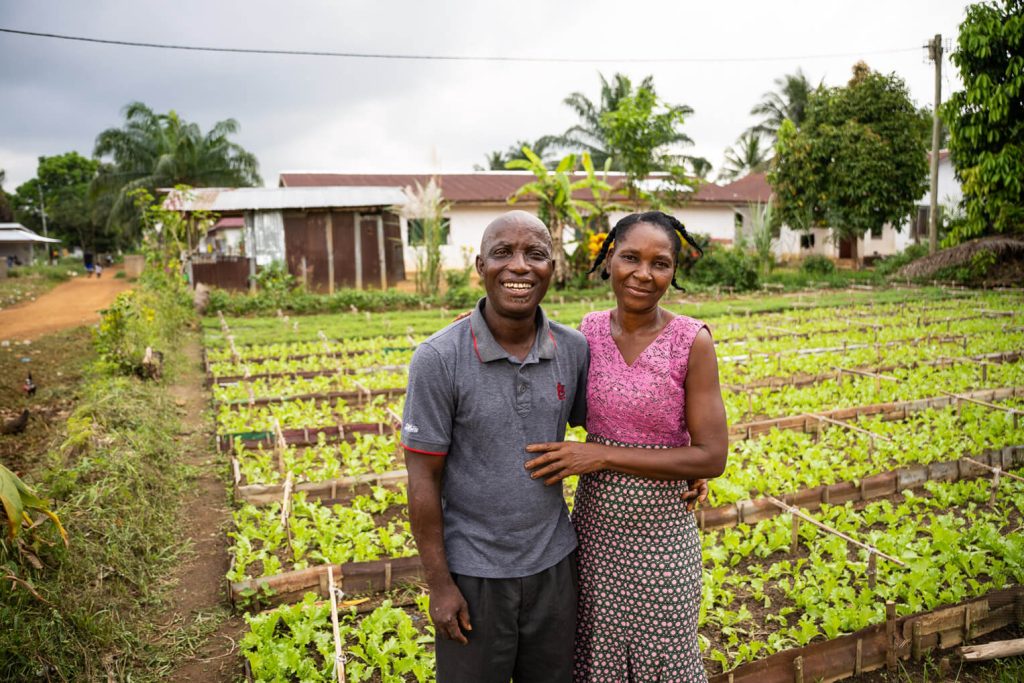
Their successful year-round harvests are proof that the Eden Project’s approach in this tropical climate can go a long way, even for a large family. Nearly every square inch of their land is producing edible plants.
“It used to be difficult for us to make anything grow,” Teewon said. “The rain would flood our crops and wash away the soil. Then the sun would come out again, and the heat would kill everything.”
Teewon is able to laugh a little about those hard times, because now it’s obvious that he’s overcome many of the challenges. He points to his crops springing to life from fibrous bags and to others growing in beds built inside boxes.
“You see? Now we raise the levels of the beds,” he said, “We grow in bags. So when the water comes up, it doesn’t expose the soil. It waters the crops for us instead.”
Until now the family struggled to make ends meet, piecing together a living through a taxi service and other odd jobs.
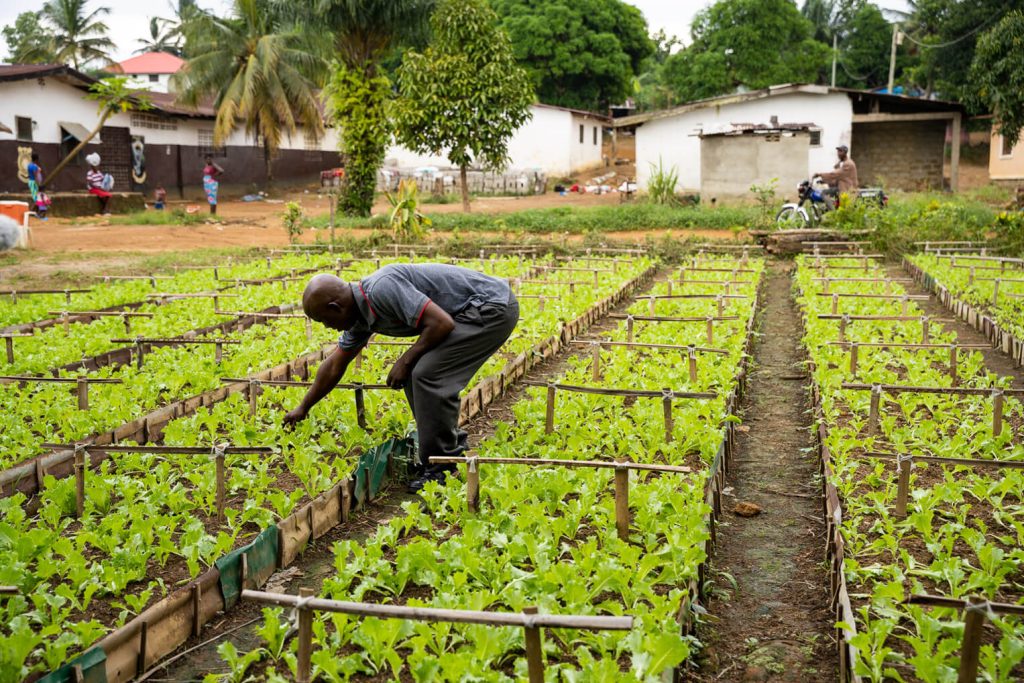
Now in their second year of successful harvests, Teewon said he’s able to pay to educate his children.
“I thank God for Samaritan’s Purse,” Teewon said. “I’m a family man. I’ve got a lot of children. Through this project, my children are learning to farm as well, and it’s funding a good education at school so they can build their own lives.
“I give the glory to God. He gave me my hands, my ten fingers, to use to work the soil. And I thank God for the Eden Project. My hope is to see myself in the future having a larger farm than this.”
Notifications